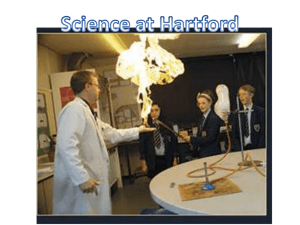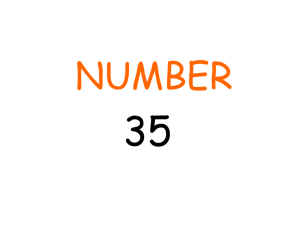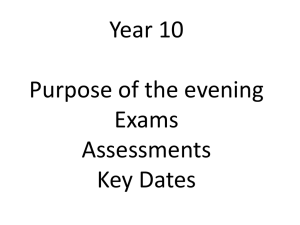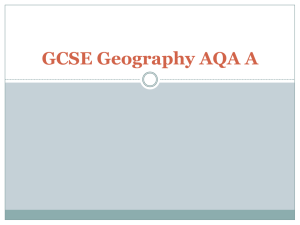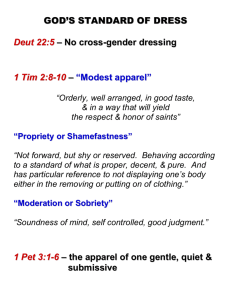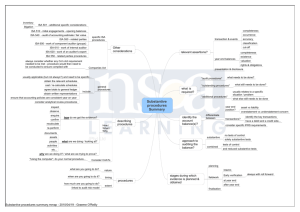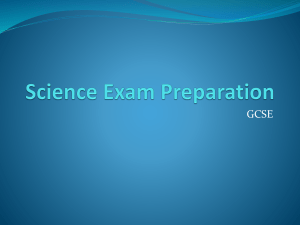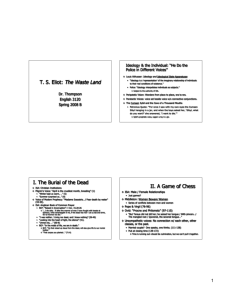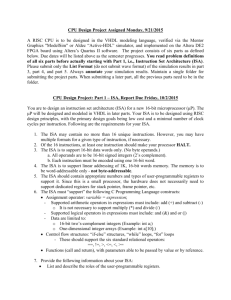Curriculum Guide | Key Stage 4
advertisement
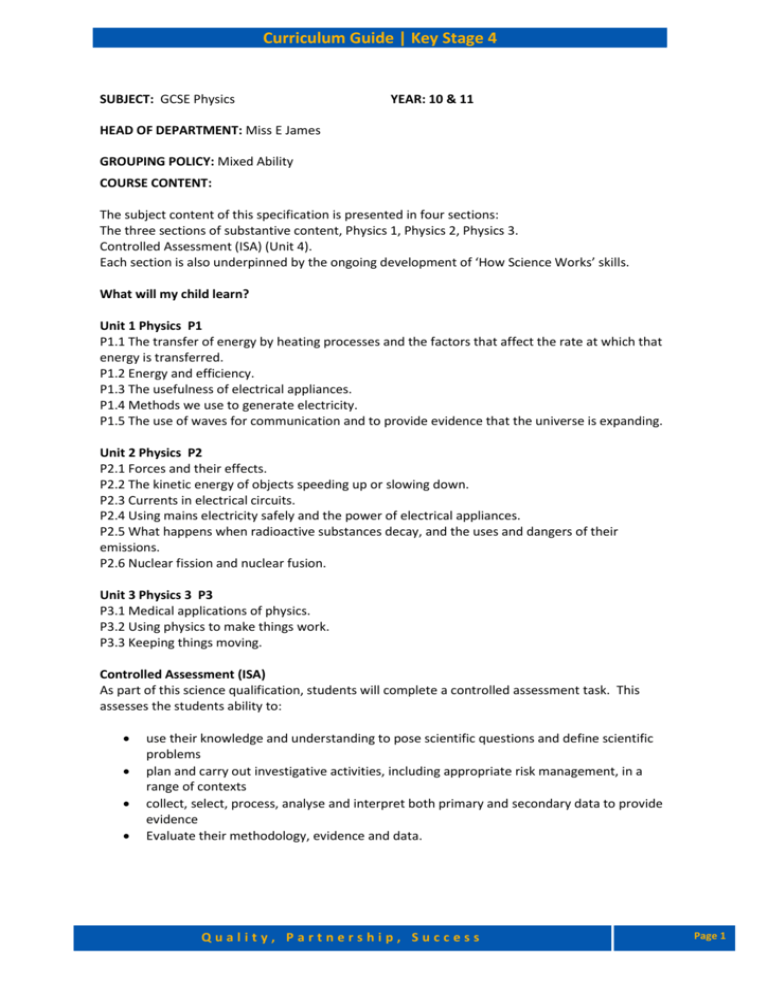
Curriculum Guide | Key Stage 4 12 SUBJECT: GCSE Physics YEAR: 10 & 11 HEAD OF DEPARTMENT: Miss E James GROUPING POLICY: Mixed Ability COURSE CONTENT: The subject content of this specification is presented in four sections: The three sections of substantive content, Physics 1, Physics 2, Physics 3. Controlled Assessment (ISA) (Unit 4). Each section is also underpinned by the ongoing development of ‘How Science Works’ skills. What will my child learn? Unit 1 Physics P1 P1.1 The transfer of energy by heating processes and the factors that affect the rate at which that energy is transferred. P1.2 Energy and efficiency. P1.3 The usefulness of electrical appliances. P1.4 Methods we use to generate electricity. P1.5 The use of waves for communication and to provide evidence that the universe is expanding. Unit 2 Physics P2 P2.1 Forces and their effects. P2.2 The kinetic energy of objects speeding up or slowing down. P2.3 Currents in electrical circuits. P2.4 Using mains electricity safely and the power of electrical appliances. P2.5 What happens when radioactive substances decay, and the uses and dangers of their emissions. P2.6 Nuclear fission and nuclear fusion. Unit 3 Physics 3 P3 P3.1 Medical applications of physics. P3.2 Using physics to make things work. P3.3 Keeping things moving. Controlled Assessment (ISA) As part of this science qualification, students will complete a controlled assessment task. This assesses the students ability to: use their knowledge and understanding to pose scientific questions and define scientific problems plan and carry out investigative activities, including appropriate risk management, in a range of contexts collect, select, process, analyse and interpret both primary and secondary data to provide evidence Evaluate their methodology, evidence and data. Quality, Partnership, Success Page 1 Curriculum Guide | Key Stage 4 12 What will homework look like? Homework will be most frequently related to the assessment of the current unit of study. This may take the form of worksheets, revision or tasks to build up ISA skills. It may take the form of a research task that helps to support the introduction of a new unit of study. Students will be encouraged to explore and evaluate different methods for revision to identify their preferred learning style. What enrichment opportunities are available? There are opportunities for students to work with industrial scientists and engineers. Students may visit Universities for a variety of workshops. How will my child’s work be assessed? Physics units 1, 2, and 3 will be assessed via 3 exams in the Summer exam period of Year 11. Unit 1, Physics (P1) Written paper – 1 hour 60 marks – 25% Structured questions One longer response question assessing Quality of Written Communication in a science context. Unit 2, Physics (P2) Written paper – 1 hour 60 marks – 25% Structured questions At least one question assessing Quality of Written Communication in a science context. Unit 3, Physics (P3) Written paper – 1 hour 60 marks – 25% Structured and closed questions At least one question assessing Quality of Written Communication in a science context. Unit 4, Controlled assessment (ISA) ISA – 2 written assessments plus one or two lessons for practical work and data processing 50 marks – 25% Controlled Assessment: o A minimum of two controlled assessment (ISA) tasks are completed in lesson time. Each assessment task lasts from four to six consecutive lessons. o The mark from the best ISA is selected for the award. ADDITIONAL INFORMATION How can I support my child in this subject? Details of the course can be found on the AQA web site. http://www.aqa.org.uk/subjects/science/gcse/physics-4403 Quality, Partnership, Success Page 2 12 Curriculum Guide | Key Stage 4 By going to the AQA home page and selecting ‘GCSE Science for 2011’ you will be directed to ‘The Science Lab’. This is a comprehensive package of information, resources and assistance on all of the current GCSE Science courses. How can I support my child with exams? The AQA website above can be used to find revision resources. Students can also use: http://www.bbc.co.uk/education/subjects/zxyb4wx (A free resource.) http://www.my-gcsescience.com/ (Subscription fees apply, but the resources are excellent.) Quality, Partnership, Success Page 3

